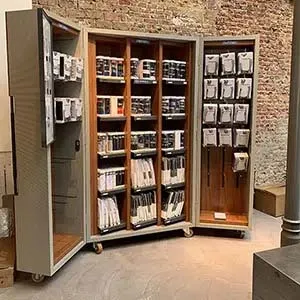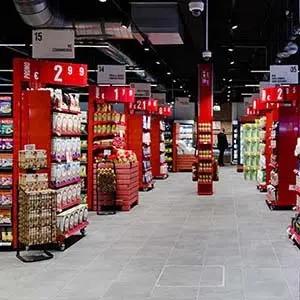9 Tips for Successful POP Campaigns
850 words — bh
#POP #instore #advertising #marketing #retail
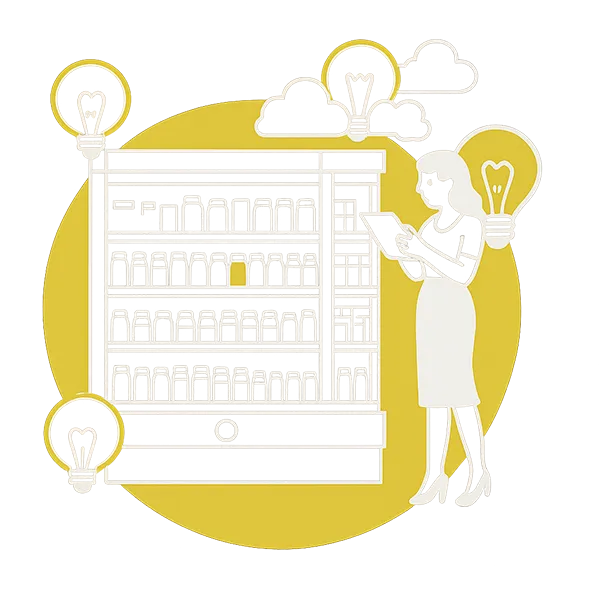
Point of purchase (POP) advertising acts as the ultimate catalyst for all out-of-store advertising efforts. POP materials have significant impact on the shopping audience; more than one in three shoppers notices and is attracted to them. In-store advertising ensures your customer actually does choose your product when it matters most — at purchase time and place.
To make buyers aware of an offer or a brand, and convincing them to consider purchasing, this type of advertising can appear in various forms. No matter your message or objectives, creating, developing, making, and implementing your POP materials requires careful consideration thought!
To help you in creating an in-store campaign that can seduce, fascinate and engage consumers, we've compiled nine practical tips. With these suggestions you implement a solution that is relevant and captivating.
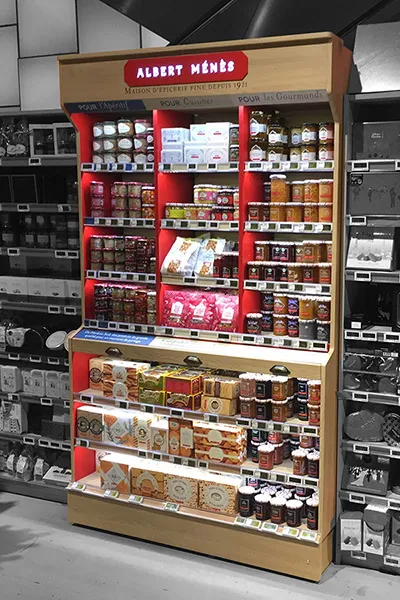
Pilotes specializes in the design of commercial furniture, display and merchandising solutions. We offer 100% customized point-of-purchase materials tailored to the in-store projects of brand and retail. Because we care about the climate and environment, we analyze the lifecycle of each project to avoid, reduce, and offset its impact 🌍🌿
Do you have a project planned? Contact us and let’s bring your vision to life together!
1. Start from a creative briefing
The foundation of any POP material relies on a briefing — the crucial first step in any creative process! Making a briefing is not easy, but by accurately defining the playing field, you'll save time, energy, and avoid disappointments.
Related article > Checklist for your creative brief2. Add value to your merchandise at the heart of your POP material
Smart design is essential; it shouldn't overshadow your merchandise but instead, make it easy to understand, and simplify purchase decisions. Forms, color specifications, textures, imagery, copy, and graphics, they all collaborate to emphasize and showcase your offer to shop visitors, who always fix their eyes on the merchandise.
3. Keep in mind that your POP material isn't your product sheet
Just because your product does some pretty amazing things doesn't mean you need to hit your audience over the head with it. Focus on key benefits that matter most to shopping consumers and their missions. What problem are you solving? What solution does your product provide? By hitting on core issues, you’ll connect with shoppers on a level that is hard to ignore.
Related article > The types of in-store communication explained4. Grab the attention of shoppers
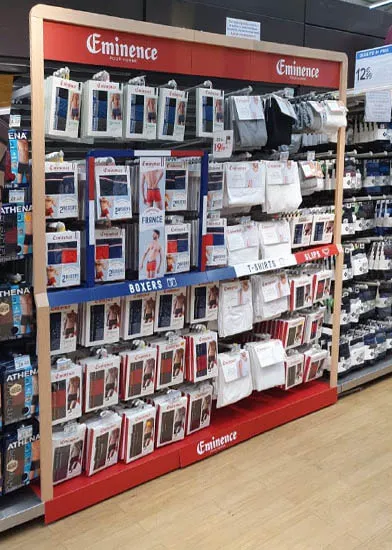
“Creation is the art of going beyond the subject," Marie-Catherine Dupuy, honorary president of the French Art Director’s Club
Design, location, and planning can collaborate to attract attention. Together, they can fascinate by revealing another side of your offer and brand, and draw shoppers towards its location, sparking their curiosity.
Related article > Attention, please! About your undivided attention in stores5. Encourage action
Good advertising aims to inform and persuade to action. In the context of a point-of-sale, the desired influencing is straightforward — nudging shoppers toward buying from you instead of your competition. So, make sure your in-store advertising isn't just passive. Does it encourage extra sales, the ultimate goal of any instore campaign?
Related article > The call to action in stores: How to persuade with POP Marketing6. Ensure cohesion
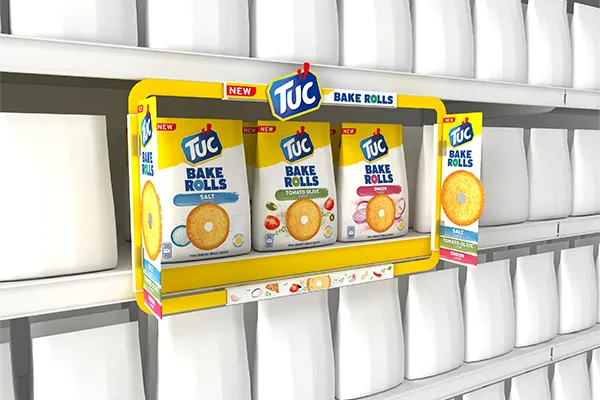
Often, POP advertising is the first introduction to an offer or brand. Alternatively, if shop visitors recognize your advertising within a familiar setting, it can instantly create likability. Even if a visitor is just browsing a shop, making an impression is highly valuable. To build brand awareness use shapes, colors, graphics, or or other brand developed assets. Consumers will remember your brand, laying the foundation for future purchases.
Related article > About the role of color in display materials Related article > About the role of graphic design and visual content in display materials7. Provide a unique experience
It's no secret — to stand out and attract customers in stores, you better opt for originality and uniqueness. The average shopper, always in a hurry, is willfully blind to insipid or two-dimensional advertising. And when it comes to displaying, don't just limit yourself to the product-carrying function of these materials. Instead, create a genuine and unique experience!
8. Understand retailer guidelines
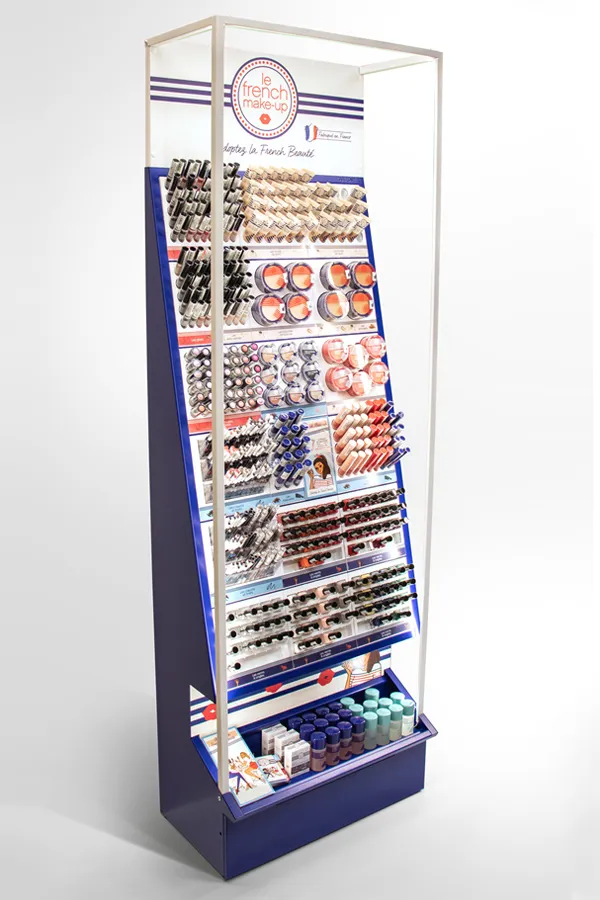
Regardless of how attractive your POP material is, it will stand tall in your warehouse if retailers reject it. Keep in mind; your sales associates need to persuade shopkeepers and departments. And it's not just about negotiating. It's equally important to consider retail guidelines early on and find the most suitable solutions.
9. Leverage the expertise of a professional
Ensure the success of your POP material by entrusting its creation, development and implementing to a partner that has day-to-day display experience. Also, a team of designers, rather than an individual, will be able to collaborate to explore, and develop the most appropriate and effective solution for you.
You can choose a partner familiar with your category. Better still, choose a supplier who understands your retailers. On the other hand, working with a team with less experience in your sector can bring innovation and fresh ideas to an original campaign.
In all cases, a smart POP strategy can drastically raise the chances of your ideal customers choosing you. Collaborating with a POP-specialist is the best guarantee for a successful, high-quality in-store campaign that reflects your image, product values, DNA, and brand culture.


